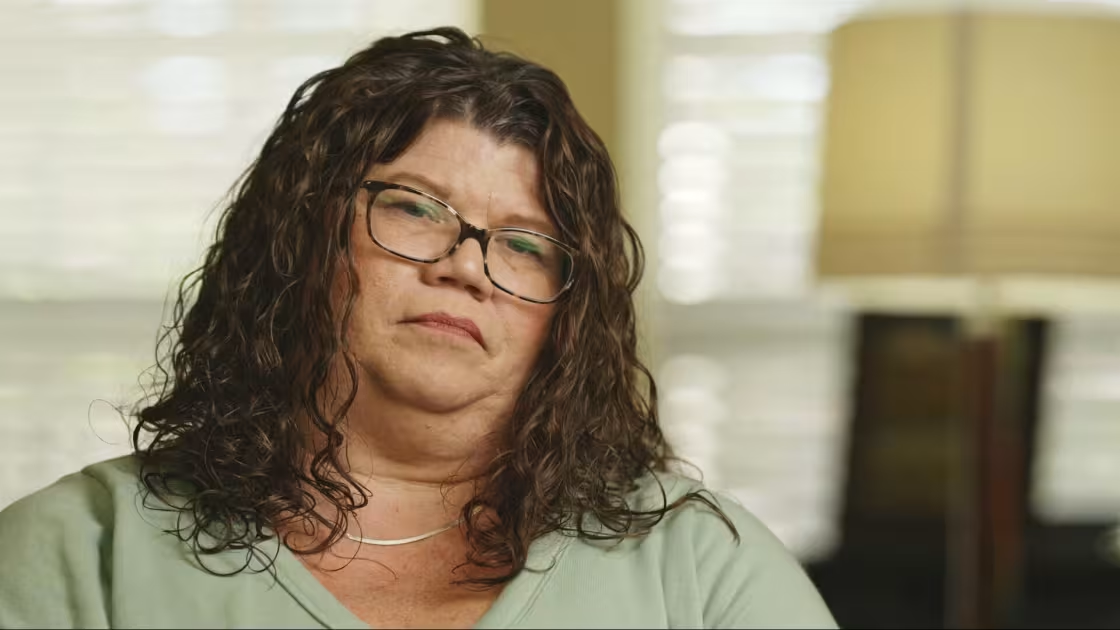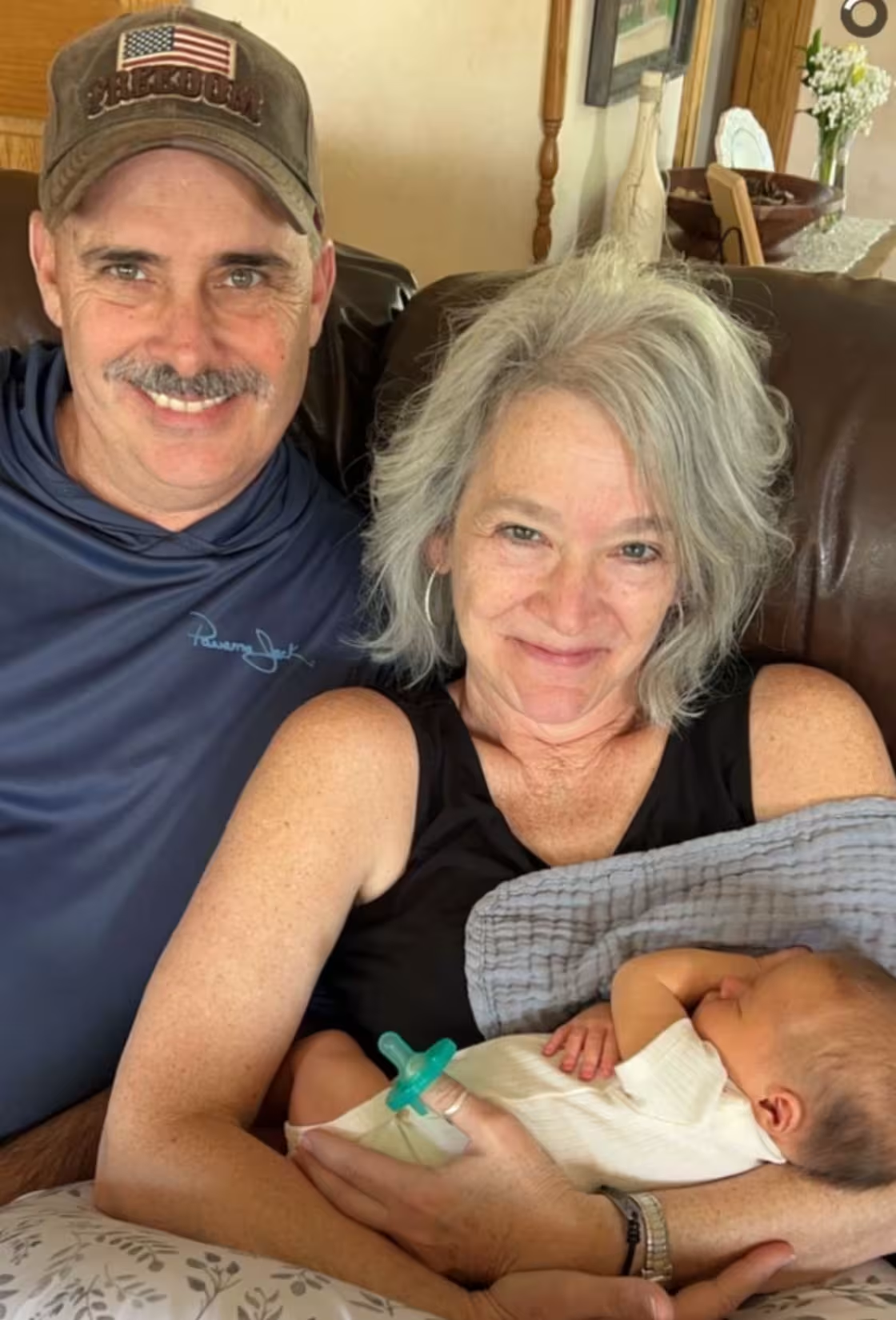When Molly Smith went for her first mammogram in 2021, she had reason to be wary. Her grandmother, mother, sister and another family member have all been diagnosed with breast cancer.
The mammogram detected abnormal tissue — said Smith, 46, a mother of two from Myrtle Beach, South Carolina — and more testing was necessary. To her great relief, Smith received a clean report following an ultrasound, MRI and biopsy. But she incurred bills of more than $1,000 that her insurance didn’t cover.
Smith is one of millions of American women who are at high risk for breast cancer but whose insurance does not cover the costs of follow-on screenings needed to detect the disease. Breast cancer can be hidden in mammograms for many women, so doctors recommend additional screenings, which include ultrasounds, MRIs and tomosynthesis, a kind of 3D mammogram.

“With ultrasounds you find cancers that are not evident on mammograms,” said Dr. Madhavi Raghu, a radiation oncologist in western Connecticut. “If tomosynthesis is normal and the ultrasound is normal, the likelihood a patient has underlying cancer is quite low.”
Women with dense breast tissue, a condition affecting roughly half of women over 40, are at special risk for breast cancer, according to the Food and Drug Administration. The condition makes it harder to spot cancer on a mammogram, so last year the FDA began requiring mammogram providers to notify women with dense breast tissue that they could need further evaluation and screenings to rule out cancer.
But such screenings cost money, out of pocket, for most women. While one mammogram per year is typically covered by private health insurance plans, they don’t generally reimburse fully for additional screenings.
And last year, doctors in Connecticut, New York, North Carolina and Texas say Medicare stopped reimbursing for the same breast cancer ultrasound screenings it had reimbursed for in 2023. Raghu provided NBC News with several redacted patient records showing Medicare declining reimbursements in 2024 for ultrasound breast screenings it reimbursed in 2023.
The lack of coverage puts women with Medicare and those with private insurance in a terrible bind.
“You know you need to go back,” said Smith, who has private insurance, “and there’s always that looming question: Am I a ticking time bomb, and what is it going to cost me?”

A spokeswoman for the Centers for Medicare and Medicaid Services said in a statement that ultrasound or MRI scans are only covered by Medicare when provided as a diagnostic test.
“If the scans were provided as a screening test, then Medicare is unable to cover those by law,” she said.
Screening is considered a routine form of testing for patients with no symptoms, while diagnostic testing investigates symptoms or abnormalities found during a screening. The CMS spokeswoman said the agency’s “coverage policy” had not changed.
Ultrasound screenings for women with dense breast tissue, under the CMS interpretation, would not be investigating symptoms. Physicians question this explanation because there is only one reimbursement code for a breast ultrasound, regardless of whether it is proposed as a screening or a diagnostic test. The recent denials by Medicare appear to place all breast ultrasounds into the category that is not covered.
Physicians say there is another problem with Medicare not reimbursing for ultrasound and other screenings: Private insurers often follow CMS’ lead on reimbursement decisions.
Limiting reimbursement for cancer screenings translates to higher out-of-pocket costs for women who need them. Unreimbursed expenses are rising, research published in the journal Radiology shows, as more women sign up for high-deductible insurance plans to reduce their health care costs. The study also confirms a fear many doctors express: Faced with additional costs for necessary screenings, many women just won’t get them. Some 21% of the women surveyed for the Radiology study said they would decline additional screenings if they had to pay for them.
“The fact that mammograms are not always a good standard or indicator is a problem we have to raise awareness on,” said Doris Caldwell, a survivor of inflammatory breast cancer in Spearfish, South Dakota. Because inflammatory breast cancer doesn’t typically show up in mammograms, Caldwell has MRIs annually. This year, she said she expects to pay $1,200 out of pocket.

“It feels like you shouldn’t have to struggle to get the extra screening you need for early detection,” Caldwell added. “The earlier you catch cancer, the cheaper it is to treat. This should be easy.”
Adding to the urgency: The American Cancer Society’s most recent statistics on breast cancer found that between 2012 and 2021 diagnoses of the disease rose faster among younger women — those under 50 — than among women over 50.
“Out-of-pocket cost sharing is a significant barrier for those individuals who need access to multiple early detection services in order to find cancer at an earlier stage when treatment is more effective,” said Lisa Lacasse, president of the American Cancer Society Cancer Action Network. “Removing cost sharing for each intervention in the screening process is a critical step toward ending cancer as we know it, for everyone.”
Last year, Iowa lawmakers passed legislation requiring private health insurers to cover the entire cost of additional breast cancer screenings, such as ultrasounds and MRIs, while a Massachusetts law from last fall requires insurers to cover ultrasounds and other screenings without increasing patients’ out-of-pocket costs.
Legislators in Connecticut, Florida, Indiana, Hawaii, South Carolina and Virginia have recently introduced bills that would require insurers to cover these additional screenings, according to the American College of Radiology. The American Cancer Society says it hopes to see similar legislation passed soon in Nebraska, Pennsylvania, Rhode Island and Wisconsin.
Other states, such as South Dakota and Montana, have tried unsuccessfully to pass similar legislation. A recent effort in Montana failed, distressing Shelley Emslie, a schoolteacher and breast cancer survivor in Bigfork, Montana. She needs regular MRIs to detect a return of her cancer; the costs of extra screenings approximate $3,500 each year, she said, charges her employer’s high-deductible insurance plan does not cover.
“I just know there are other women out there not getting the screening because of the cost,” Emslie told NBC News. “You’re going to have people who have a mammogram and need additional screening, but they’re not going to go back in.”
This story first appeared on NBCNews.com. More from NBC News:






